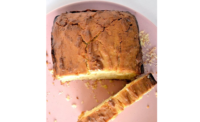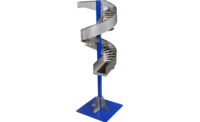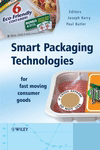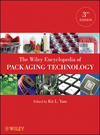Cablevey Develops “Smart Cart” to Make CIP Practices Easier for Tubular Drag Conveyors

The “smart cart” allows for the cleaning of tubular drag conveyors to become almost entirely automated. Courtesy of Cablevey
To promote food safety and sanitary compliance, food packagers are increasingly seeking the ability to Clean-in-Place (CIP), an automated method of cleaning the interior surfaces of tubular drag conveyors without disassembly. Now, with the advent of mobile tools like an innovative “smart cart” that quick-connects to any tubular conveyor and enables simple, customizable “single button cleaning recipes,” CIP is becoming easier, faster, less labor-intensive, more repeatable, and almost fully automated.
Tubular drag conveyor systems gently move product through a sealed, enclosed tube using a drag cable and circular discs pulled through on a loop, so they are ideal for delicate items. In a wet CIP process, the system is flooded with water, flushed, rinsed, cleansed, and thoroughly sanitized. The process thoroughly flushes out any potential allergens like nuts or gluten from conveying equipment and can be used with a variety of food types such as nuts, grains, cereals, powdered soups, and frozen fruits and vegetables.
Although the CIP process is very effective, streamlining its automation and simplifying the process for all of a facility’s tubular drag conveyors has been a priority for leading innovators in the industry.
“The standard system required port hookups to water lines and installing piping. The processor also had to make decisions such as which water temperatures to utilize, or whether to use a cleaning solvent — and the correct amount to add manually,” says John Adair, Engineering and Quality Director for Cablevey Conveyors, an Oskaloosa, Iowa-based conveyor manufacturer that has designed, engineered, and serviced enclosed cable and disc tube conveyors for 50 years, and is in more than 65 countries.
To simplify the wet cleaning process, Adair and his engineering team at Cablevey have developed a small, mobile “smart cart” with integrated water line hookups that a single technician can easily take to any tubular drag conveyor in a facility. The cart is specifically designed to be a fraction of the size of similar carts on the market to facilitate mobility. When the cart is in position and connected to water lines, the CIP process is automated and controlled by a programmable logic controller (PLC) that reduces the need for manual labor and virtually eliminates the risk of improper cleaning.
The smart cart is designed to store and utilize pre-programmed CIP recipes to flush various residual materials from the tubular drag cable conveyors in a facility before new production runs. The cleaning recipes enable even those with very little training to use the cart. This is helpful in today’s tight labor market and allows the technician to move on to other tasks once the cleaning process begins.
The use of easily executable recipes ensures a superior, repeatable clean that essentially “error proofs” the process. This is particularly important when the technician may be new or less familiar with the production equipment.
“Depending on the product being conveyed, sometimes all you need is a wet rinse, or sometimes you need a specific cleaning solvent. All that information is saved, so after the first cleaning, it can be automatically repeated. Just push a button to start the appropriate recipe, whether you have one conveyor running multiple products, or dozens of conveyors running various products,” says Adair.
To facilitate food safety compliance, the smart cart also documents all critical CIP information such as water volume and temperature, chemicals used, and cleaning time by date in an easily retrievable data log.
While the food packaging industry is aware of the benefits of automated CIP, barriers to implementation have slowed adoption. Utilizing a mobile smart cart with integrated water hookups will help packagers to easily implement CIP in tubular drag conveyors throughout their facilities; expediting conveyor cleaning, production changeover, and sanitary compliance.
To learn more, please visit cablevey.com.
Looking for a reprint of this article?
From high-res PDFs to custom plaques, order your copy today!









